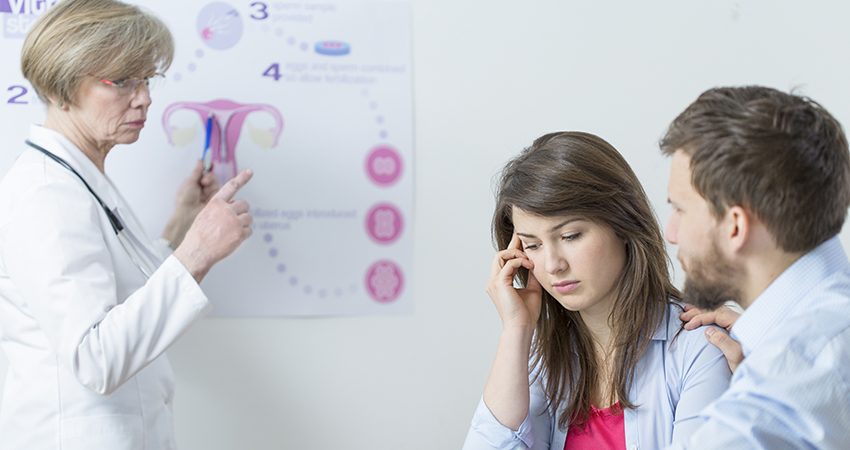Fibroids are abnormal growths on or in the uterus; the tumors can vary in size from the very small to some that are large enough to distend the uterus itself. Most fibroids are benign and non-cancerous; however they can result in several physical problems including severe pain, heavy blood flow and even complications with pregnancy or conception. By the age of 50, 50-70% of women have experienced fibroids. Read more on fibroid symptoms and their most commonly associated symptoms.
Five Most Common Fibroid Symptoms
Menstrual
Heavier than normal periods, painful cramping and abdominal discomfort, menstrual flow requiring additional protection such as thicker pads and/or tampons. Some menses can also become irregular with some spotting, or can become abnormally prolonged in length – up to seven days or more. This is one of the most common fibroid symptoms women experience.
Pelvic Pressure
Pain in the abdomen and pelvis can become chronic and constant. Some experience discomfort or pain during sexual intercourse and can develop pressure, bloating and swelling within the abdominal wall.
Bowel and Bladder Control
Frequent urination and loss of bladder control can occur – many women experience this to such a degree that adult diapers are sometimes needed. Conversely, women can also find it difficult to empty their bladders, and also have bouts of constipation. In rare cases, kidney blockage can also occur.
Pregnancy/Conception Problems
Difficulty conceiving is often one of the first symptoms of fibroid tumors, as they can make it difficult or impossible to become pregnant. Sadly, in some cases miscarriages are also a factor, and other complications with ongoing pregnancies can also happen, such as placental abruption and premature labor.
Back and Leg Pain
Can come on suddenly and sharply without warning, and can also be constant and chronic.
Diagnosis and fibroids treatment require a gynecologist to administer a pelvic exam to determine the existence of any tumors, their size and type, and the overall condition of the uterus itself. An ultrasound may be needed so that the doctor can determine what, if any treatment is needed. In some cases, a pelvic MRI – which is an in-depth image analysis of the pelvic area and uterus — may be recommended for diagnosis.
Depending on age, size, and type of tumors, one or a combination of treatments can be offered. There are several medications available which can help regulate hormone levels ; in some cases, menstruation may cease, and fibroids can shrink. Other options include an intrauterine device (IUD), as well as anti-inflammatories like Ibuprofen, and even birth control pills may be recommended.
In less common cases, surgery may be necessary to remove tumors. Many of these procedures are fairly non-invasive – laparoscopic procedures using small incisions and a camera, for instance, and a new procedure called “forced ultrasound surgery” (FUI) might be used. FUI uses high-frequency sound waves to destroy the fibroids and is completely non-invasive. Other treatments include Uterine Fibroid Embolization (UFE), which uses a small catheter inserted into the femoral artery in your upper thigh that cuts off blood flow to the fibroids so the shrink from malnourishment. In extreme cases, surgery may also include a full hysterectomy and removal of the reproductive system – but only if other avenues have proven unsuccessful and your condition becomes worse.
If you are experiencing sharp and sudden pains, abdominal discomfort, heavy bleeding, or are having trouble getting pregnant, please contact us and arrange an exam. Again, in most cases, these fibroids are non-cancerous and are relatively harmless; it is their fibroid symptoms which cause a variety of issues with regard to pain and successful pregnancy. Our doctors will be able to treat your case fairly easily and quickly, depending on the size and the location of the tumors. If you are pregnant and develop fibroids, your doctor can monitor your condition and progress carefully, and in most cases, your pregnancy will be uneventful and successful.
If you have any questions or would like additional information, you may also call during business hours. We will do everything we can to assist and guide you.


